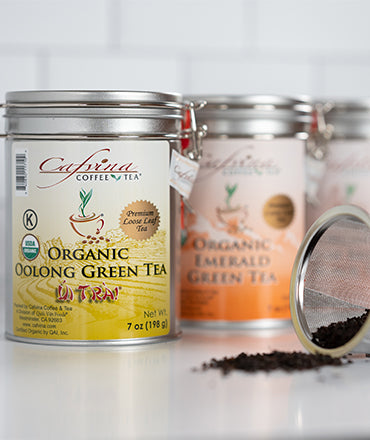
If you enjoy drinking tea or coffee, you may want to choose organic versions. These are better for your health because they are free from pesticides and other harmful additives or chemicals.
Moreover, they are also rich in antioxidants, which protect your heart and help slow down your aging process.
It’s a healthy alternative to coffee
Whether you’re trying to cut down on caffeine or just want something different, a healthy alternative to coffee may be in order. You don’t have to give up the warmth and jolt of a cup of coffee, but it can be a challenge to find a drink that will keep you feeling alert without triggering any of the side effects like nervousness, jitters, or acid reflux.
Luckily, there are some excellent options that will help you feel better, while still giving you the energy you need to get through your day. One such option is organic tea and coffee.
Both of these drinks are free from pesticides, which is a huge plus for the health of the environment and the wildlife that live in the area. Moreover, they are high in antioxidants, which can help fight inflammation and disease. These beverages also have a variety of other benefits that will contribute to your overall wellness.
It’s free from pesticides
Tea and coffee are the most popular beverages in the world, and they are good for relaxation, a calm state of mind and a boost of energy. However, if you’re concerned about your health, it is best to go organic to avoid drinking pesticides.
Non-organic tea and coffee are sprayed with various pesticides, herbicides and fungicides. These chemicals enter your body and can cause serious health problems.
But luckily, organic tea and coffee are free from pesticides. This is because the plants used to grow organic tea and coffee are not sprayed with these chemicals.
The beans are then dried and roasted, and if any pesticides were left on them, it would be burnt off during the roasting process.
In addition, the USDA National Organic Program requires farmers to use chemical-free growing and handling methods. This helps to ensure a healthier industry and protects the environment and the people who work in it.
It’s a good source of antioxidants
When you consume foods rich in antioxidants, your body is able to combat the free radicals that are found in everyday living. Over time, these free radicals can damage cells and cause chronic diseases like cancer and heart disease.
The good news is that the antioxidants in tea and coffee can help fight these effects, too. In fact, both beverages contain polyphenols that are believed to protect against oxidative stress, according to the Harvard T.H. Chan School of Public Health.
Antioxidants are natural compounds that scavenge free radicals in your system and neutralize them. Studies have shown that they can slow inflammation, reduce your risk of diabetes, and boost your immune function.
Organic tea and coffee are a good source of antioxidants because they’re not sprayed with pesticides or other chemicals that harm the environment and local communities. Additionally, they contain a healthy dose of caffeine that promotes a restful sleep and improves mental performance.
It gives you natural energy
If you’re in the market for a natural energy boost, opting for organic tea and coffee is a smart move. Both contain caffeine and antioxidants that have been known to improve sleep, reduce stress, increase focus and improve cognitive performance.
However, coffee may have the most impressive effect on your energy levels. The caffeine in it stimulates your brain and kickstarts a cascade of events that leads to a long-lasting boost.
But it can also lead to jitters and a crash later in the day. The good news is that there are plenty of natural alternatives that offer a similar energy boost without all the side effects.
The best way to find out is to try it for yourself! Here are some of our favorites.
Frequently Asked Questions
What are the most popular organic products?
The fastest-growing industry is organic food. But even though we've come a long way from our roots, there is still much room for growth.
Organic products are the future. They are safer, healthier for the environment, and easier to afford for consumers.
But they tend to be more expensive. That is why we developed the Organic Food Index. We wanted to find out which foods are most popular with shoppers today, and whether these trends are changing.
These results indicate that organic food is growing in popularity. Between 2011 & 2012, almost half of Americans purchased organic food.
The USDA reported that organic production rose by 10% in the last year. Currently, organic food accounts for 9% in the U.S. agricultural production.
Although organic food is gaining popularity, it appears that consumers still have to pay a premium for it. The Organic Trade Association (OTA) reports that organic food retail prices average almost double the price of conventional foods.
Organic food is growing faster that any other sector of the food industry. If you look closely at the data, it will be apparent that organic food consumption has steadily increased since 2009.
According to OTA's data, organic products sold in supermarkets grew at 14% between 2010 - 2011.
This is because of consumer demand for healthier products, which explains the rise in organic food sales across all age categories.
Younger generations are choosing organic food more often than older generations. Millennials have twice the likelihood of buying organic food as baby boomers. 25 percent of organic food purchases are made by young adults younger than 35.
Is organic the same as pesticide-free?
Organic food does not contain pesticides or chemicals and is therefore chemical-free. This means that organic food is often free of pesticides and fertilizers.
Because organic produce is free of harmful additives, it also has more nutrients than conventionally grown foods.
The USDA National Organic Program, (NOP), requires farmers to adhere to strict guidelines when cultivating organic crops.
These guidelines cover soil preparation, crop rotation and pest control. They also include water conservation and harvesting techniques.
Organic farming also promotes healthy ecosystems which are beneficial to wildlife and natural habitats.
Which organic vegetables are best?
Organic vegetables provide the most healthy and nutritious food for people. They are among the most nutritious foods on Earth.
Organic produce is organically grown without pesticides. These chemicals can pose serious risks to our environment and health.
Organic produce contains more nutrients, vitamins and minerals. Organic produce is more nutritious and healthier.
Not only do organic vegetables taste delicious, but they are also safe to eat. Organic produce is safe to eat.
Every grocery store will carry organic fruit and vegetables. They can be labeled organic if they are grown according to USDA guidelines.
What is inorganic?
Organic food is made without pesticides or artificial fertilizers. These chemicals can be harmful for your health.
Organic food is organically grown without the use of harmful chemicals such as pesticides or herbicides. These chemicals may cause damage to animals as well as humans.
Inorganic food can include meat, fish eggs, buttermilk cheese, buttermilk, yogurt, honey grains, vegetables, fruits spices, and herbs.
The way that an agricultural product is grown organically is what the term means. Organic farming is based on natural methods, soil amendments, and crop growth. Conventional farming uses pesticides, fertilizers, and chemicals.
Foods labeled as organic must meet strict guidelines by the U.S. Department of Agriculture (USDA). According to the National Organic Program Standards all organic food must be free of banned materials such as antibiotics growth hormones genetically modified organisms GMOs, and industrial solvents. Additionally, organic food must be raised without toxic chemicals, petroleum-based fertilizers, sewage sludges, or ionizing radiation.
Statistics
- Brands participating in this challenge are committed to using 100 percent sustainable cotton by 2025.[5] (en.wikipedia.org)
- When packaged products indicate they are “made with organic [specific ingredient or food group],” they contain at least 70% organically produced ingredients. (usda.gov)
- Popular clothing brands, like Patagonia, are labelled as organic by using 100 percent organic cotton for many of their styles. (en.wikipedia.org)
- Cosmetic brands such as Laurel and Rose Mira are 100 percent organic and have a wide array of skincare products. (en.wikipedia.org)
External Links
doi.org
- Occupational Pesticide Exposures and the Cancer Risk: A Review. Journal of Toxicology and Environmental Health. Part. B. Vol 15, Issue 4.
- Genetically modified foods: safety, risks and public concerns--a review - Journal of Food Science and Technology
ams.usda.gov
ewg.org
usda.gov
How To
What happens when you switch from conventional products to organic?
Organic products are free from synthetic fertilizers, pesticides, hormones, and genetic manipulation. They are free-range and come from clean water sources. Organic products are those that do not contain chemicals or other additives. This product is natural and does not contain any harmful substances.
The term "natural" refers how food is grown. This term is often used to refer to foods that are not processed into final forms (such as fruits). Natural foods are usually fresher than processed foods, as they haven’t been exposed to heat, radiation, chemical preservatives, or other treatments. But, not everyone believes that natural foods are healthy. Experts agree that organic and conventional foods are very similar. Both types have been tested for quality and safety. But organic produce has fewer pollutants and pesticide residues than conventionally grown produce.
Most grocery stores now sell organic products. If you are looking for organic meat, poultry and eggs, check with your local grocery store. Some companies offer only organic products while others have separate sections. USDA Certified Organic is a non-GMO Project Verified company.
If you are pregnant, or nursing, these products should not be eaten. Unborn babies and infants can be exposed to pesticides.
Resources:
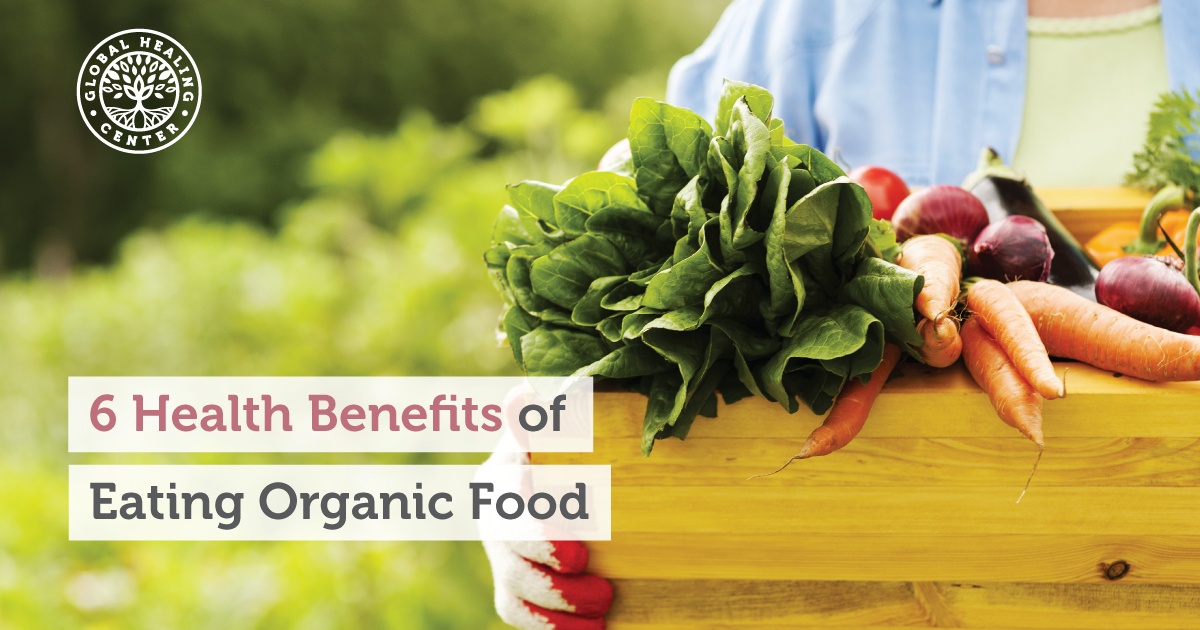 |
Nuts and SeedsNuts and seeds are nutrient-rich crunchy tidbits that add a protein, fiber and healthy fat punch to meals and snacks. They’re also a great source of.. |
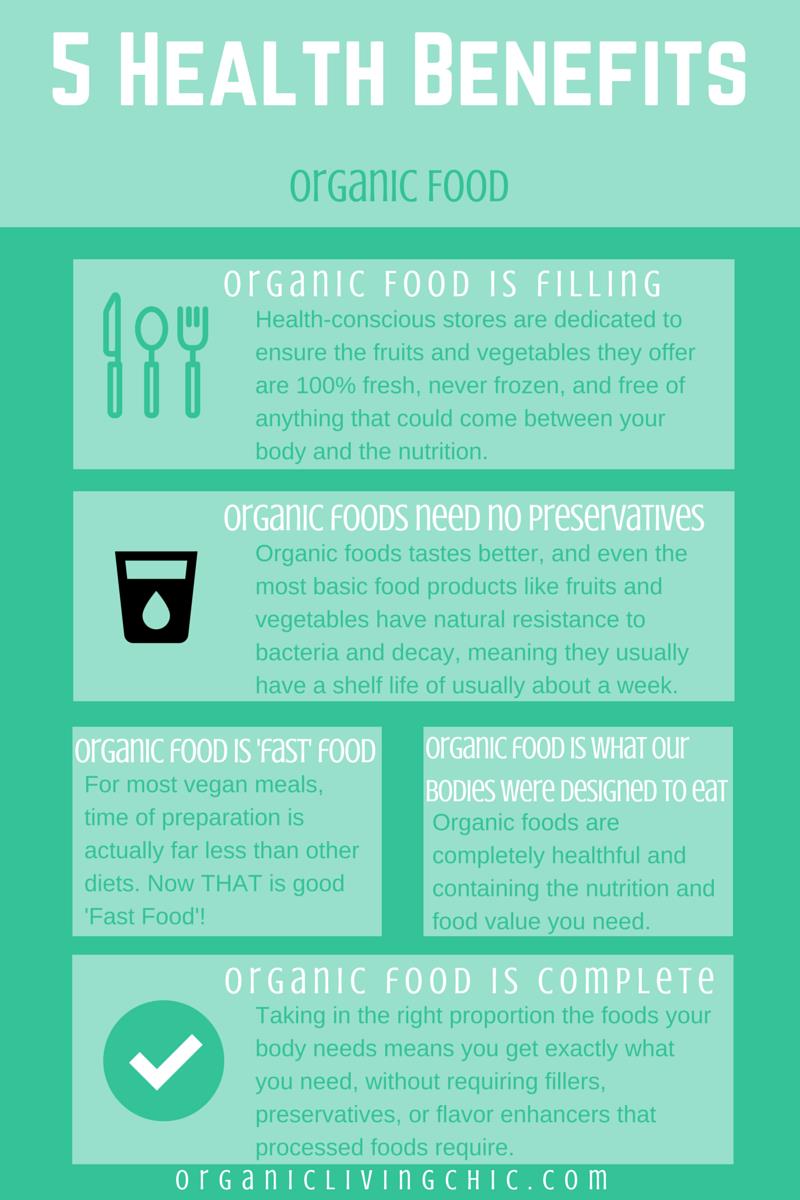 |
Organic Food For A Six Pack? The TRUTH About Organic vs Conventional Foods!Get ripped and keep your strength: http://goo.gl/uLzHn6 Hey guys, it's Clark over at Six Pack Shortcuts and today we're gonna talk about organic vs |
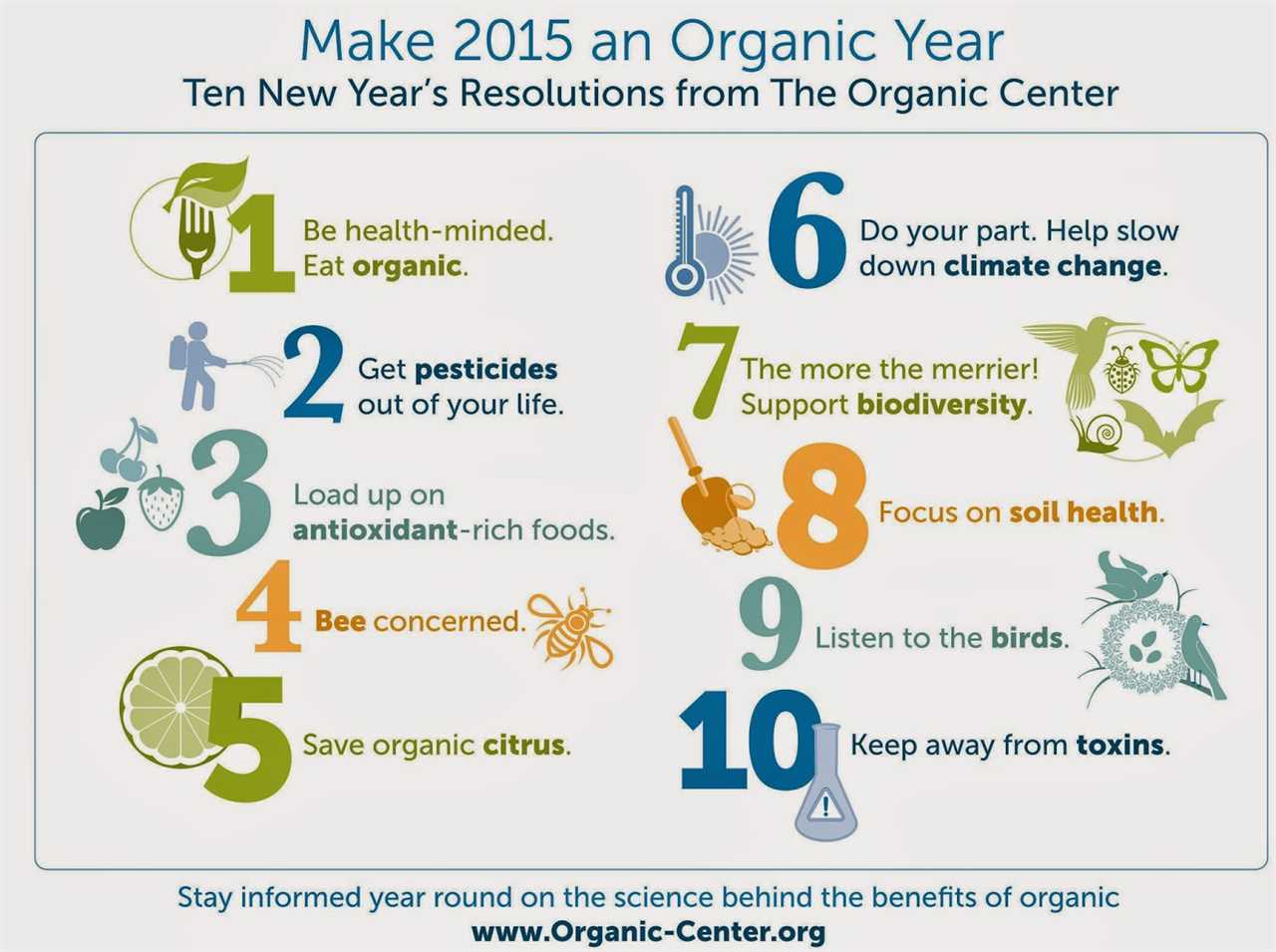 |
Organic vs Conventional Produce - The Dirty Dozen & Clean 15 ExplainedClick https://skl.sh/flavcitywithbobbyparrish to get 2 months of Skillshare for FREE! Here is a full review of the dirty dozen fruits and vegetables and |
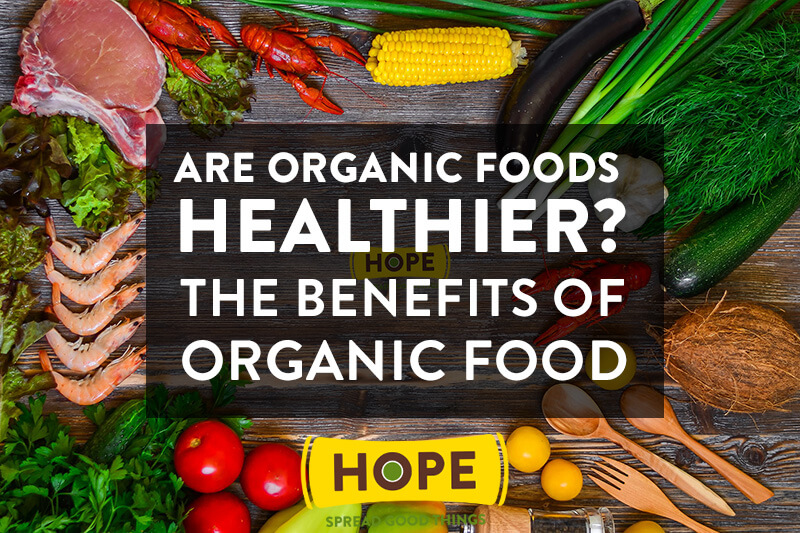 |
Are Organic Foods Really Healthier?It's widely believed that organic foods are more nutritious and safer than non-organic foods, even though the evidence is far from clear. Food certified as |
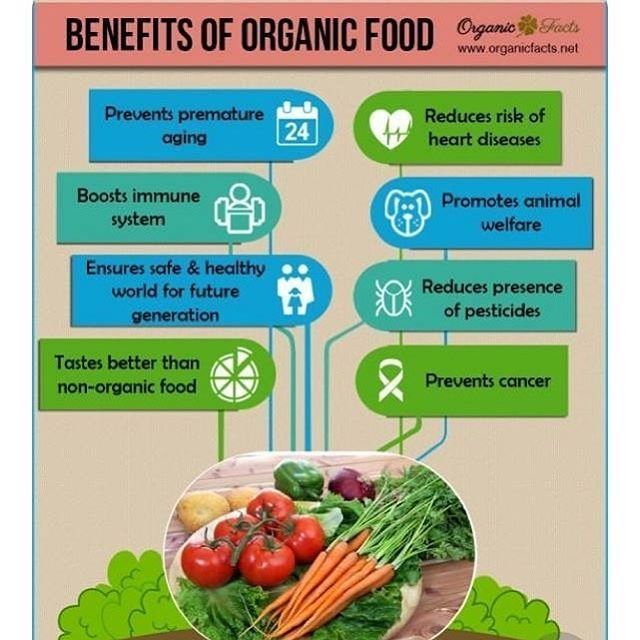 |
Are GMOs Good or Bad? Genetic Engineering & Our FoodAre GMOs bad for your health? Or is this fear unfounded? OUR CHANNELS German Channel: https://kgs.link/youtubeDE Spanish Channel: |
 |
How the food you eat affects your brain - Mia NacamulliView full lesson: http://ed.ted.com/lessons/how-the-food-you-eat-affects-your-brain-mia-nacamulli When it comes to what you bite, che […] |
 |
Is Buying Organic Food Worth The Cost?Subscribe to Goodful: https://bzfd.it/2QApoPk Goodful Goodful Feel better, be better, and do better. Subscribe to Goodful for all your healthy self care |
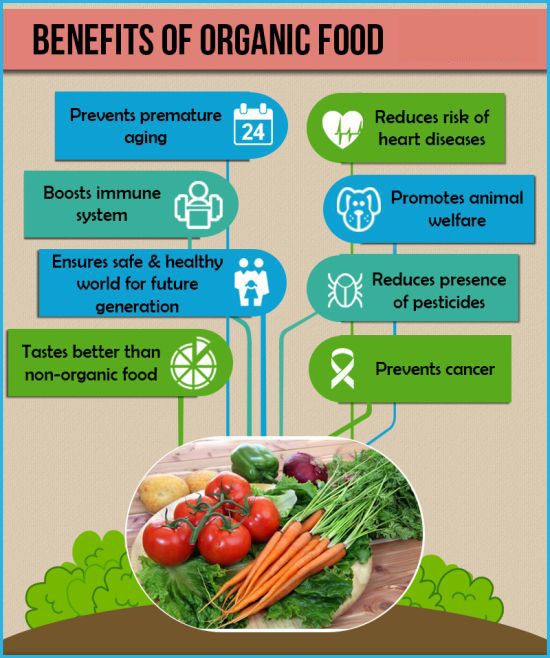 |
Benefits of Choosing Organic Gluten-Free OptionsIf you’ve been diagnosed with gluten sensitivity or celiac disease, you know how hard it can be to avoid foods containing wheat and other grains. But |
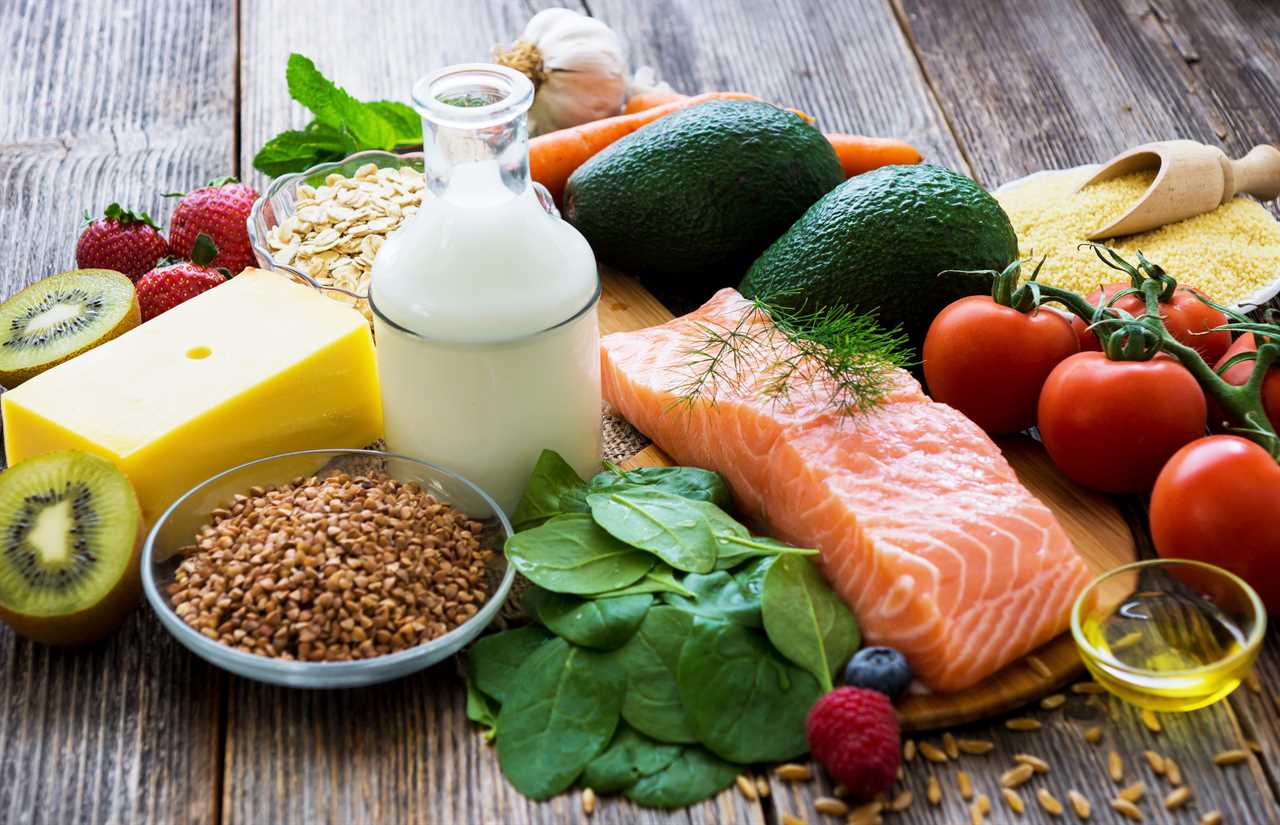 |
Joseph Wang LIVE (Bank Bailouts and Moral Hazards Deep Dive)buy my stuff Come to rebel capitalist live at https://rebelcapitalistlive.com Check out my private, online investment community (Rebel Capitalist Pro) |
 |
Organic Farming and Soil HealthOrganic farming practices promote soil health through crop rotations, symbiotic associations, cover crops and minimum tillage. These management.. |
 |
Research Reveals How Your Body Reacts When You Eat Only Organic FoodsThere is a growing belief that organic foods are healthier for us than non-organic foods. This ever-increasing belief is responsible for significant growth in |
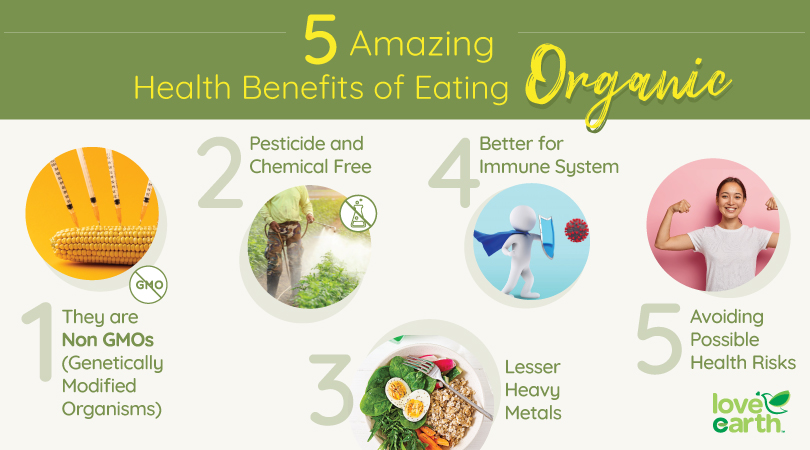 |
Stop Wasting Money on These ORGANIC Veggies (you don’t need to buy them organic)Click Here to Subscribe: http://Bit.ly/ThomasVid Get MY Recommendation on Groceries Delivered to Your Doorstep with Thrive Market: http: […] |
 |
If You Eat an Avocado a Day For a Month, Here''s What Will Happen to YouWhat Will Happen to Your Body If You Eat Avocado Every Day. The avocado is a unique fruit with multiple nutritional and health benefits. How would your body |
 |
Korean GardeningKorean gardening is one of the oldest ways to grow plants. It involves planting herbs, fruits, and vegetables that are used in kimchi, a type of.. |
 |
The Rodale InstituteThe Rodale Institute is a nonprofit organization that aims to support research into organic farming. It was founded in 1947 by J. I. Rodale, an.. |
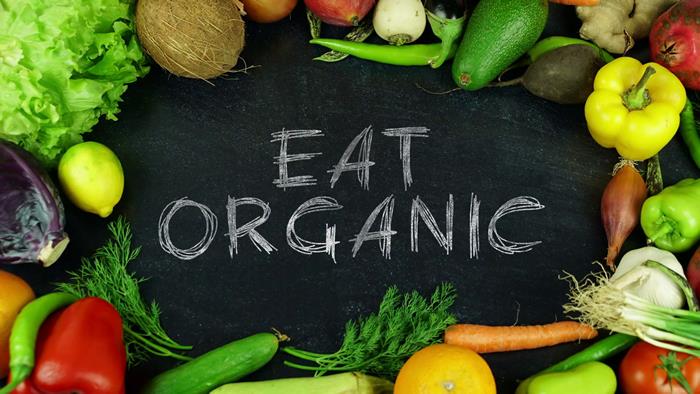 |
Organic eatingOrganic Cultur |
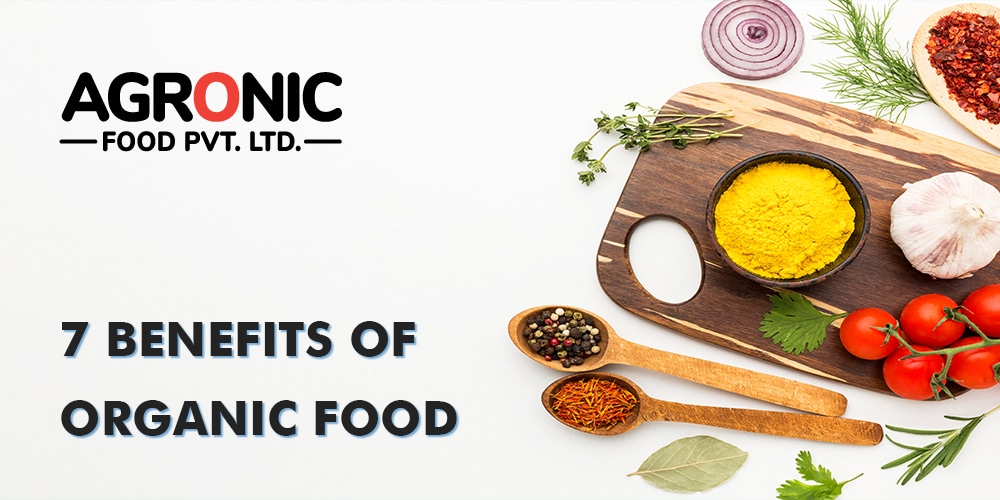 |
What is a Conventional Farm?Conventional farm is the term used to describe a farm that is not organic. It is a form of agriculture that is associated with better soil quality,.. |
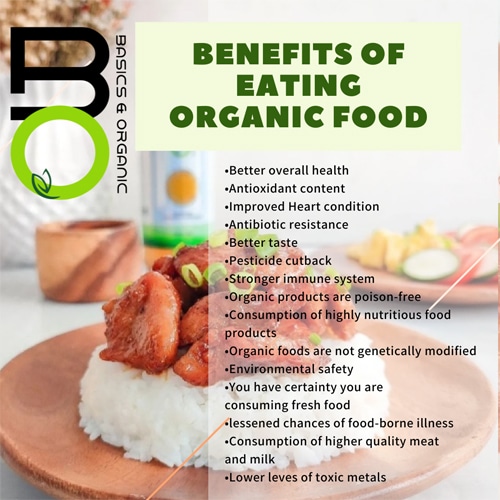 |
Chhattisgarh's Organic Farming SchoolsThe government of Chhattisgarh has started to introduce organic farming schools. This initiative is intended to provide the young generation with the |
 |
Can Organic Be GMO?The question Can organic be GMO is an ongoing debate among many consumers. While it's possible to eat foods that have been produced using genetic.. |
 |
When Did Organic Food Start?The answer to the question when did organic food start? will vary depending on the time period in which you are looking at. For instance, it may be a |
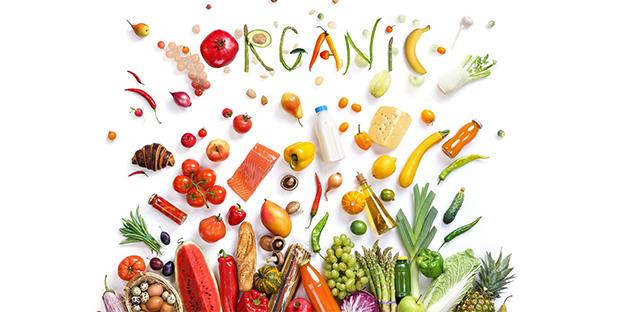 |
Organic Farming PrinciplesOrganic farming is a practice that is designed to be sustainable and healthy. Its principles include avoiding harms produced by industrial farming.. |
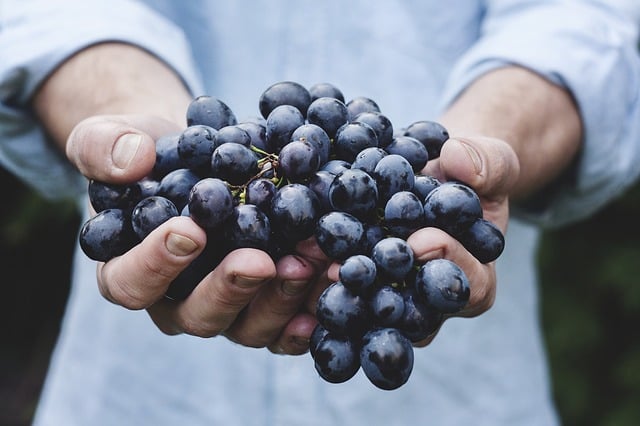 |
Soil Composition and BiodiversityThe soil that we have around us is a vital part of our lives. It is the home for many plants and animals. It also has a texture, a color, and many.. |
 |
The Benefits and Pitfalls of Organic Farming OrganizationsOrganic farming is an approach to farming that is not only ecologically sound, but also financially feasible. It is a method that is free from.. |
 |
Exotic VegetablesWhen it comes to vegetables, there are plenty of choices to choose from. Some of the most popular choices include broccoli, corn, carrots, and.. |
 |
Learn How to Become an Organic Farmer Through a Training ProgramIf you are looking to become an organic farmer, there are several ways you can do so. One option is to take a training program that will teach you.. |
 |
Benefits of Cover CropsIf you aren't familiar with cover crops, you may be surprised to learn that they are plants that are planted to grow on top of the soil to help.. |
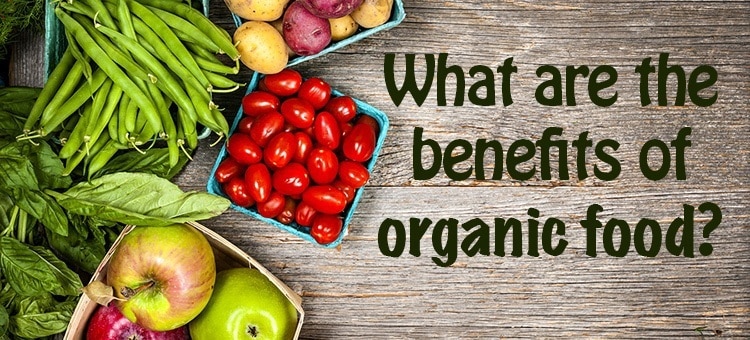 |
What is Organic Cotton?Organic cotton is the type of cotton that is grown without using pesticides or chemicals. It is also the type of cotton that is grown in subtropical.. |
 |
Is Organic Farming Beneficial to Biodiversity?Organic farming is a growing interest in the scientific community, and researchers have been investigating whether the practice is beneficial to.. |
 |
The Benefits of CompostingComposting your waste can be a very effective way of ensuring that your organic material is being broken down to the best of its ability. When.. |
 |
The Difference Between Organic Milk and Regular MilkOrganic milk is a type of milk that comes from livestock that is raised according to organic farming methods. This is a term that is regulated by.. |
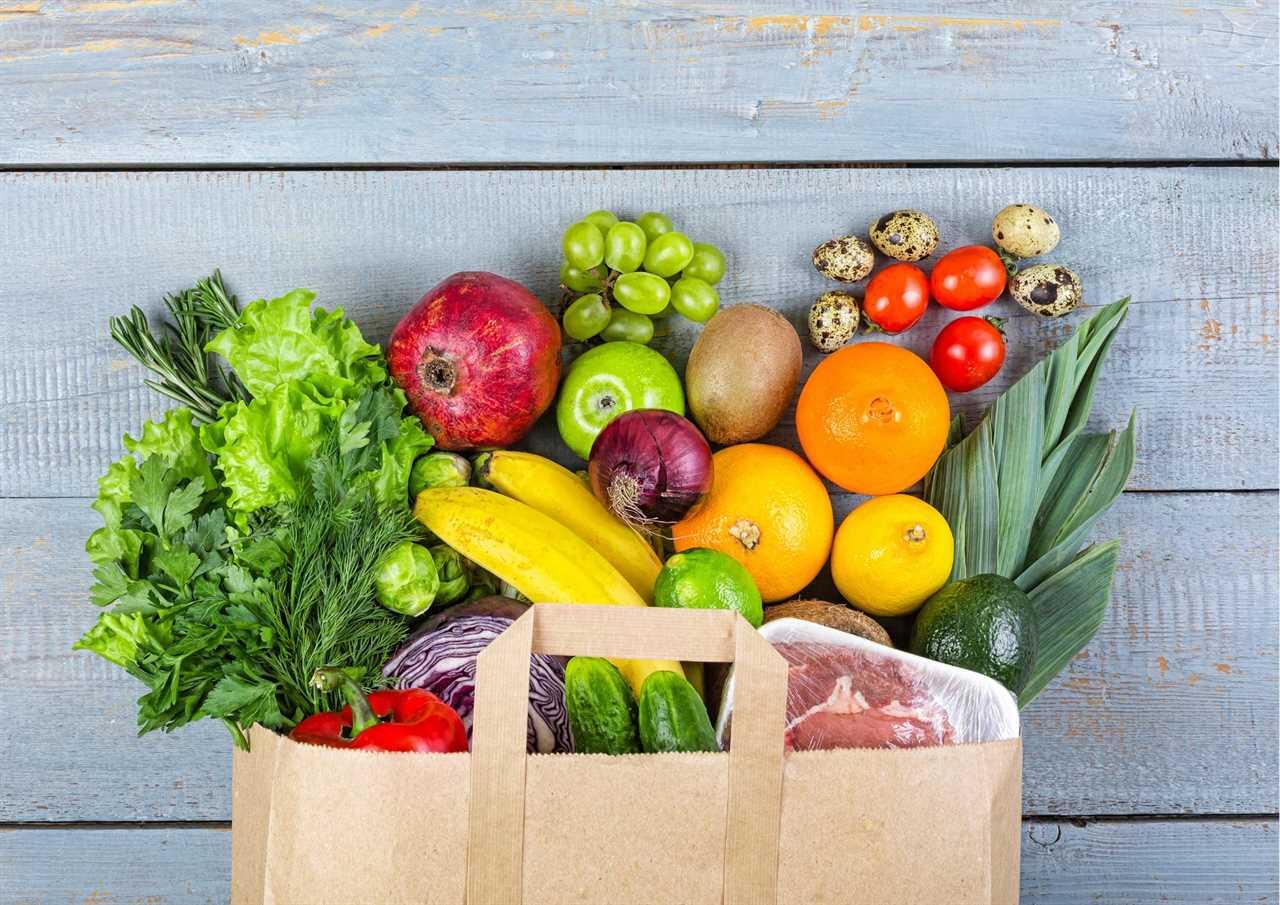 |
Organic Farming MagazineOrganic farming magazine is a resource that provides you with the latest information on organic agriculture, health, and sustainability. It also.. |
 |
The Latest Research on Organic | The Organic CenterResearched articles about eating Organic food |
.png)





